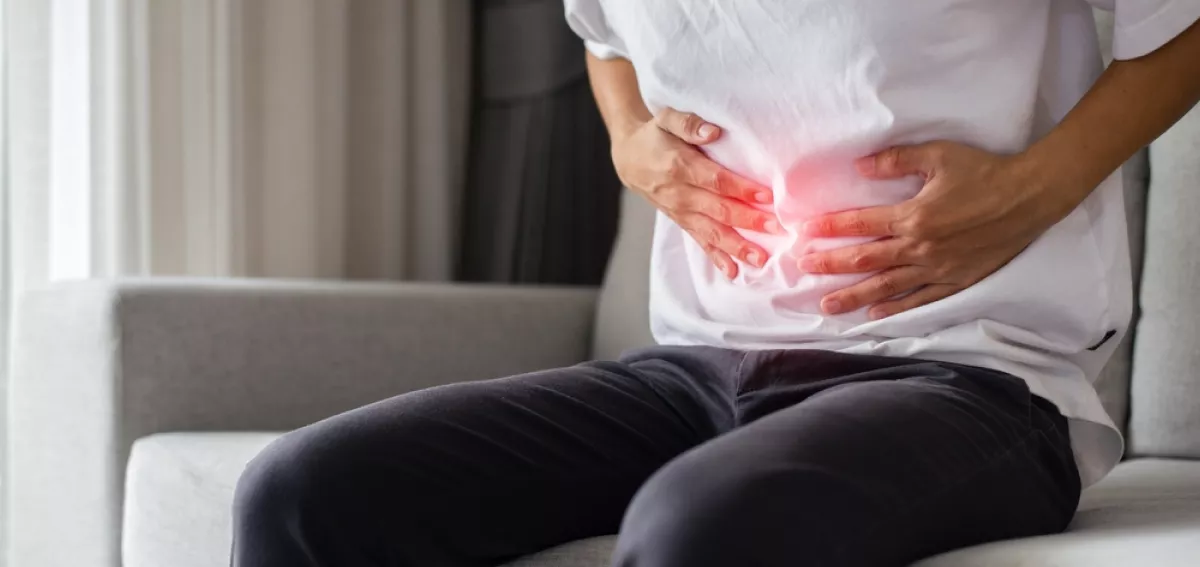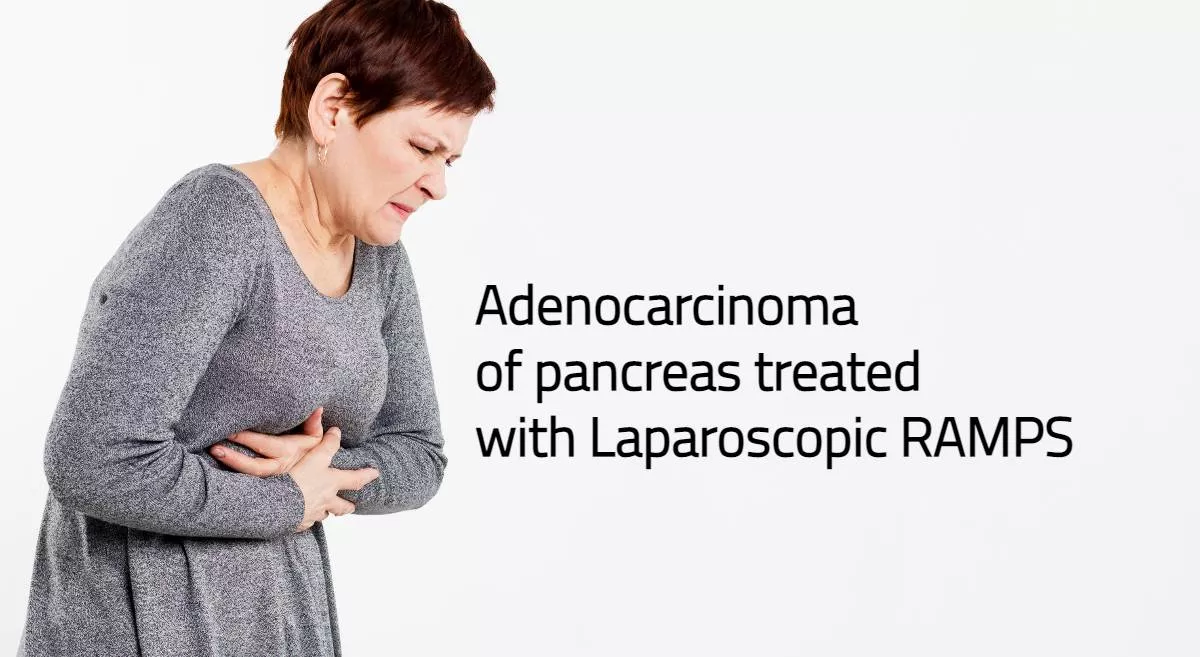What is abdominal bloating?
First and foremost, abdominal bloating is a sensation of tightness, pressure or fullness in your abdomen. It may or may not be accompanied by a visually noticeable swelling or a distended abdomen. The sensation might range from barely irritating to excruciatingly agonising. It normally fades away in time, but for some people, it frequently recurs. Hormonal changes and digestive problems can also cause cycles of bloating. You should visit a gastroenterology facility to discover the reason for your persistent swollen abdomen.
How common is stomach bloating?
About 10% to 25% of normally healthy individuals report having periodic abdominal bloating. Up to 75% of people report that their symptoms range from moderate to severe, and 10% of people claim to have it on a regular basis. It could be as high as 90% among people with Irritable Bowel Syndrome (IBS). Bloating can occur both before and throughout the menstrual cycle for up to 75% of women. Only 50% of those who report experiencing bloating also describe having an enlarged abdomen.
Symptoms of abdominal bloating
Gas, discomfort and stomach pain are typical signs of bloating. Additionally, you could also experience regular burping, belching or belly rumbling or gurgling. Severe bloating may be accompanied by other troubling symptoms, like:
- Blood in stool
- Noticeable loss of weight without exercising or other activities
- Vaginal bleeding (between periods or in post-menopausal women)
- Nausea
- Vomiting
- Diarrhoea
- A worsening case of heartburn
- Fever that is caused by an infection.
Causes of bloating
Constipation is a typical contributor to bloating. Because one of the symptoms of constipation is having fewer bowel movements than usual, you may be suffering from constipation without realising it. Even if you have regular bowel movements, you could still remain constipated. Other constipation signs and symptoms include:
- Struggling to begin or complete a bowel movement
- Stool that resembles pebbles and rocks
- Feeling full even after a bowel movement.
Abdominal pain and bloating may be worsened by constipation. The longer your stool remains in your colon, the longer it takes the bacteria to ferment it, which causes increased gas and bloating.
Other causes of bloating besides constipation include:
- Sensitivity in the gut: People who suffer from IBS may be particularly sensitive to gas, which can result in discomfort, cramps and diarrhoea
- Small intestinal bacterial overgrowth (SIBO): Normally healthy individuals have comparatively little bacteria in their small intestines. People who have IBS with diarrhoea, intestinal surgery or both are more likely to have SIBO, which can result in bloating
- Gastroparesis: This disorder results in delayed emptying of the stomach, which can lead to bloating, nausea and even bowel obstruction
- Gynaecological conditions: Bloating can occasionally be brought on by gynaecological diseases, such as issues with your ovaries or uterus. Ensure that you always get a pelvic check-up from a gynaecologist every year.
How can I prevent stomach bloating?
You can lessen stomach bloating caused by food or alcohol consumption by altering your way of life. Good broad principles to prevent bloating include the following:
- Consume sufficient fibre: Fibre will initially make you gassier, but as it moves through your digestive tract, it will assist in removing the fermenting faeces that have become lodged in the tract. Fibre also makes you feel full faster, which helps you avoid overeating by signalling your body to drink more water. The healthy bacteria in your stomach are fed and encouraged by fibre, which is prebiotic.
- Drink adequate water: This will promote motility throughout your entire digestive tract and prevent your food from being too compacted and hard to move through as it is being broken down.
- Exercising: Exercise keeps your bowels working and helps reduce water retention. Additionally, it can aid in preventing the quick weight gain that often targets your belly.
- Do not eat anything processed: As they are low in fibre and rich in salt and fat, processed foods are unhealthy.
- Become mindful of what you eat: Take your time, chew each bite completely, and finish your meal before you feel completely full.
Treatment
You can help treat bloating in the following ways
- Elimination diet: In order to discover your food sensitivities and give your digestive system a chance to recover, a dietician can assist you by suggesting and guiding you through an elimination diet. This usually entails following a highly restricted diet for a brief period of time and gradually reintroducing particular food groups to see how your body responds. The Low-Fermentable Oligosaccharides, Disaccharides and Polyols (FODMAP) diet is a great choice to try if you have frequent bloating
- Hydrogen breath test: Several other digestive problems, including specific sugar intolerances and SIBO, can be effectively screened for with this basic test
- Targeted probiotics: If your doctor determines that you have SIBO or another type of gut bacterial imbalance, they can help rebuild your microbiome by reintroducing the particular bacteria you lack in order to balance out the ones that are bountifully present
- Hormone therapy: Taking hormonal birth control tablets can help some women with their monthly bloating and other premenstrual symptoms. Supplemental oestrogen and progesterone can help some premenopausal women with their symptoms
- Biofeedback: This type of mind-body therapy can aid in relaxation and the retraining of your body's functions.
FAQs
1. Why do certain foods make you feel bloated?
Before they reach the colon, foods containing FODMAPs are not completely digested. They are fermented by colonic bacteria, which can cause bloating.
2. Can bloating cause chest pain?
Sometimes, bloating may lead to chest pain, caused by the reflux of acidic contents from the stomach into the oesophagus
3. Sort of pain is caused by gas in the stomach and intestines?
The pain caused by gas retention ranges from mild and dull pain to piercing and intense pain.
4. Who should I consult if I feel bloated?
You can consult a general physician if you feel abdominal bloating along with symptoms like diarrhoea and vomiting. To receive specialised care, you can consult a gastroenterologist. Aster hospital has the best gastroenterologists in Bangalore, capable of providing the best care for you and your family.
5. Which foods should I eat to prevent bloating?
Some common foods to eat are yoghurt, fennel, bananas, ginger, avocados, etc.







